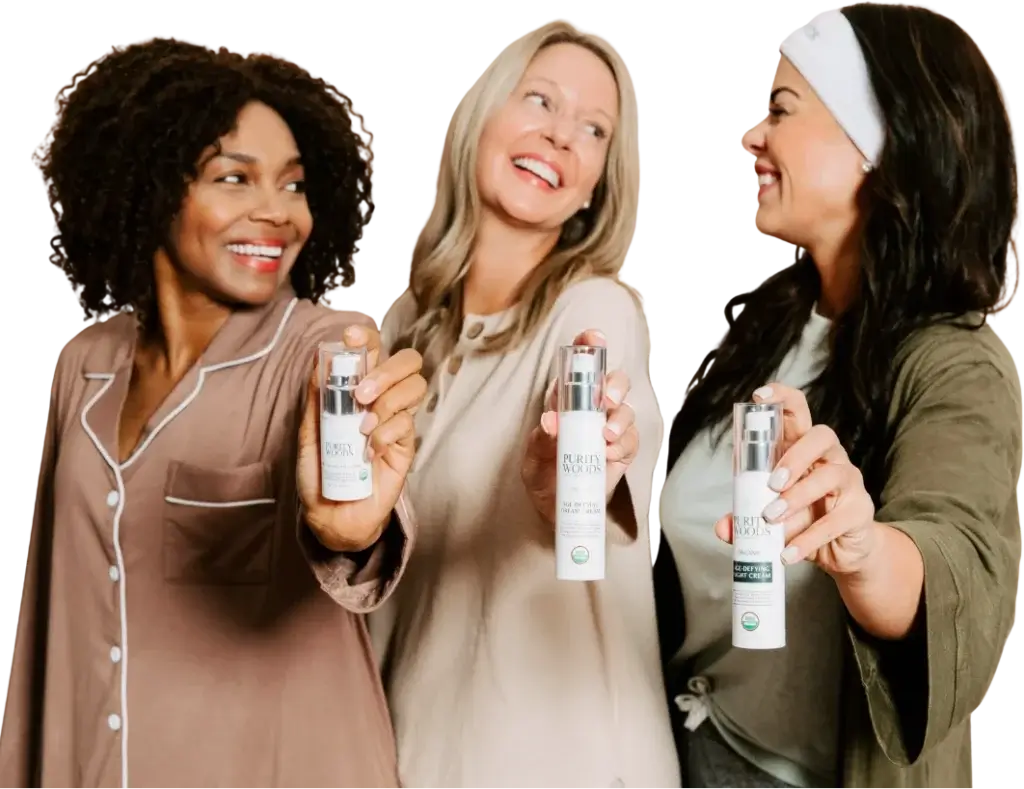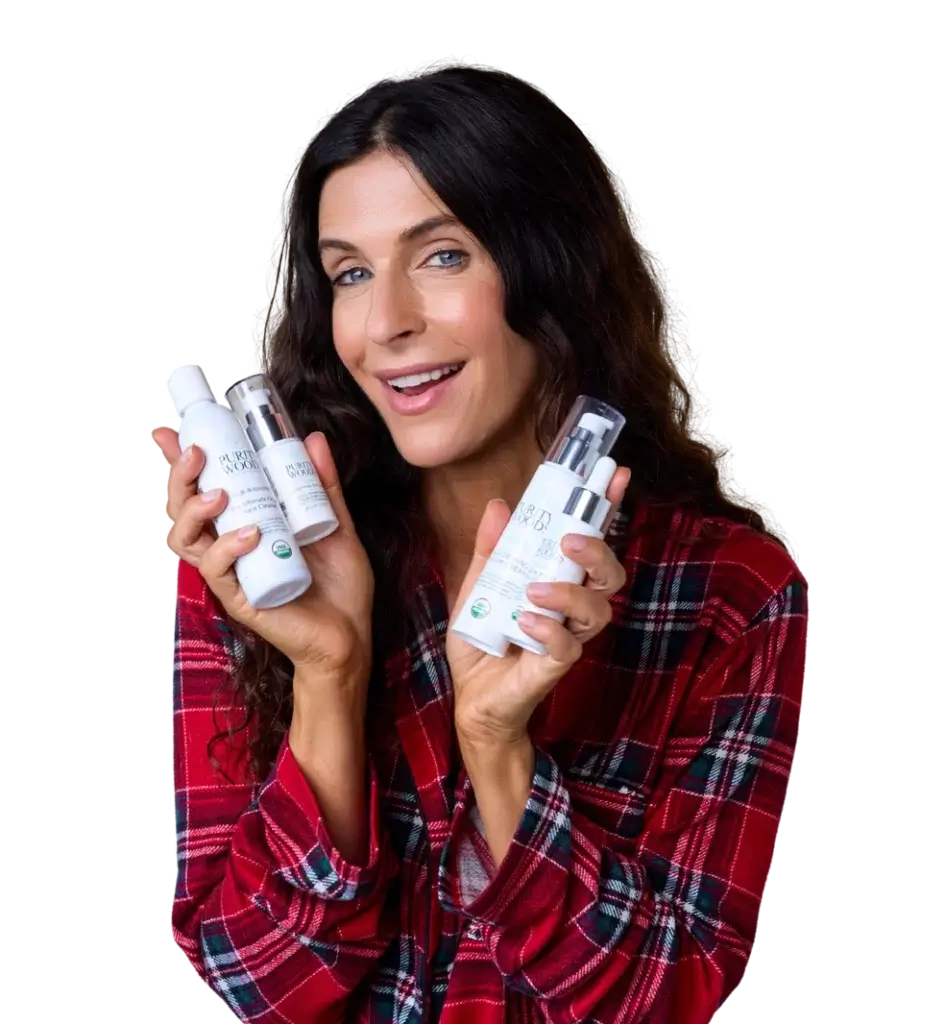Anti-aging skincare isn’t about looking 20 years old when you are 60. It’s about getting your skin to look its healthiest and most youthful using holistic practices, natural ingredients and adopting a healthy lifestyle that is truly good for your skin and body.
Unfortunately, some of the habits you practice every day may be having the opposite effect on your skin. Your skin is very sensitive to internal and external stressors, which means it can be impacted even by seemingly innocent activities.
On the flip side, your skin is also highly receptive to positive change. If you identify your bad skincare habits and eliminate them, you can slow the aging process to achieve a younger-looking complexion.
To help you on this path, here’s a look at some of the worst daily habits and factors that are making your skin look older, including some lesser-known contributors to aging.
Common Habits That Make Your Skin Look Older
Getting Too Much Sun
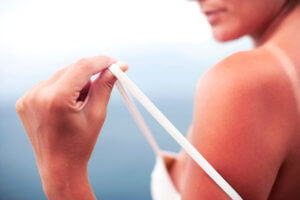
Sunshine is not “bad” for your health. In fact, your body needs it to produce vitamin D, a very essential nutrient.
However, sunlight does contain ultraviolet (UV) rays that can do damage to your skin. Overexposure to these UV rays is the #1 cause of premature skin aging and results in something known as photodamage, which is essentially damage at the cellular level that leads to visible signs like wrinkles, dark spots, roughness, etc.
Age spots are a form of hyperpigmentation caused by prolonged sun exposure, which is why it’s important to protect your skin if you plan to be outside for any length of time.
Physical protection— hat, sunglasses, etc.— is most effective, or you can opt for a non nanoparticle zinc sunblock.
Smoking
There is nothing about smoking that is good for your health— or your skin. It happens to be a huge accelerator of skin aging and is responsible for making many people look older than they are.
Studies have consistently shown that tobacco smoke degrades both collagen and elastin, two very important skin proteins. It also increases free radical production, which is another major factor in skin aging. Because of this, smokers tend to have less elastic skin and more visible signs of aging.
Interestingly, research that involved identical twins found that smoking particularly increased wrinkles.
This is reason enough to not only quit smoking, but also to avoid second-hand smoke as much as possible.
Using Toxic Skincare Products
Cosmetics and skincare products in the U.S. frequently contain chemicals banned in the EU and other countries over toxicity concerns, which may affect women’s health and beauty. Some of these chemicals include known carcinogens as well as endocrine disruptors and skin irritants (ironically).
These chemicals aren’t just hazardous to your health. They can also compromise the integrity of your skin barrier, which can lead to lack of protection and open your skin up to degradation. Moreover, they can cause blemishes and exacerbate existing skin issues. Even “anti-aging” ingredients like alpha and beta hydroxy acids can make your skin more sensitive to UV radiation and photodamage.
Unfortunately, it’s up to you as the consumer to constantly read labels to avoid the worst toxins in skincare. Making changes to your skincare routine and avoiding harmful chemicals is important for maintaining healthy skin. Your skin will definitely appreciate the effort!
Drinking Too Much Alcohol

There are a few sneaky ways alcohol can impact your complexion, and none of them are good.
One of the most immediate effects alcohol has on your body and skin is dehydration. This means it basically sucks the water out of your skin and opens it up to wrinkles and a lifeless appearance. Alcohol can also cause inflammation and facial redness, which may become semi-permanent with daily drinking.
Heavy alcohol use typically leads to sagging skin, impaired skin elasticity, under-eye bags, and increased wrinkling and slow healing.
Excessive drinking is obviously the worst for your skin. However, some experts recommend cutting back to a drink every other day or only twice a week if you really want a more youthful complexion.
Not Sleeping Enough
Sleep is when your body goes into deep repair and regeneration mode. It’s incredibly important for your overall health but is also key to young-looking skin.
To give you a clearer picture, sleep deprivation is associated with accelerated skin aging, particularly wrinkles, fine lines, decreased elasticity, dark circles, and uneven skin tone. Not getting enough sleep also harms your skin barrier, which makes your skin more likely to be dry.
Furthermore, poor sleep quality can lead to hair loss or thinning hair, since hair follicles also go through a regenerative phase during sleep. Thus, it is important to prioritize sleep to maintain healthy skin and hair.
The bottom line is that you should take your “beauty rest” seriously. Aim for 7-8 hours of quality sleep each night, and try to avoid sleeping with your face shoved into your pillow, since this can cause facial lines and wrinkles.
Eating a Poor Diet
What you put in your body has a big impact on the health of your skin, as well as your overall well-being. In addition to causing weight gain, mood swings, and joint pain, a diet filled with processed foods and refined sugar can also accelerate the aging process of your skin. There are certain key vitamins and minerals needed for healthy skin, and food is a major source of these nutrients.
One of the best things you can do for your complexion is to avoid processed foods and refined sugar as much as possible. Most processed food lacks nutrients and may contain toxic additives. Overloading on sugar contributes to a process known as glycation that eventually leads to collagen damage and loss of skin elasticity.
There’s no perfect skincare diet, but the best approach is to focus on consuming nutrient-dense whole foods, particularly plant-based ones.
So, if you want to slow down what makes you age faster, start by making healthy food choices.
Look at this list of the top foods for healthy, glowing skin if you need a place to start.
Not Staying Hydrated
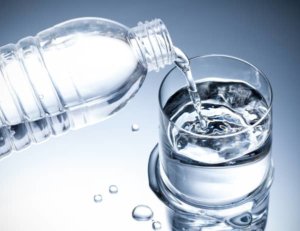
If you tend to skimp on H20, you are doing your skin a major disservice.
Water is one of the top nutrients your skin needs to stay plump and healthy. It benefits every cell in your body and helps your skin stay hydrated at the deepest level. Without it, your complexion will quickly become dry and lifeless— and possibly itchy, red, and irritated, too.
In addition to drinking water, you can also keep your skin hydrated by using a good moisturizer. Dry skin is more prone to wrinkles and fine lines, so it’s important to keep it moisturized to maintain a youthful appearance.
Make sure you drink plenty of pure water throughout the day, even setting an alarm to remind you if you tend to forget.
Using the Wrong Cleanser
Cleansing is an important step in anti-aging skincare. It gets rid of dirt, dead skin cells, and other debris that may be clogging up your pores, leaving your skin looking fresher and brighter.
Or at least, that’s how it’s supposed to work.
Unfortunately, not all cleansers, especially facial ones, have ingredients that promote a youthful glow. Many of them strip your skin of healthy oils, all in the name of “cleansing”. This will leave your skin dry over time and more susceptible to pollutants, toxins, etc.
Even worse, certain types of surfactants frequently found in cleansers weaken skin barrier function and remain on your skin even after rinsing.
Avoid them by looking for natural soaps that contain plant-based moisturizers as well as cleansing ingredients.
Not Dealing with Stress
You’re probably aware that chronic stress can have a significant negative impact on your health. But what many people don’t realize is how much stress also affects their skin.
When you feel stressed, your body releases certain hormones, including cortisol. These hormones should go back to normal levels after the stressful event is over, but chronic stress breaks this pattern and can keep hormones elevated.
Researchers believe this is what affects both your health and your skin. This constant state of stress and hormone flux can cause numerous skin issues via the “brain-skin connection”, especially inflammation and premature aging.
The bottom line is that managing your stress is essential for your well-being and young-looking skin.
Over-Exfoliating
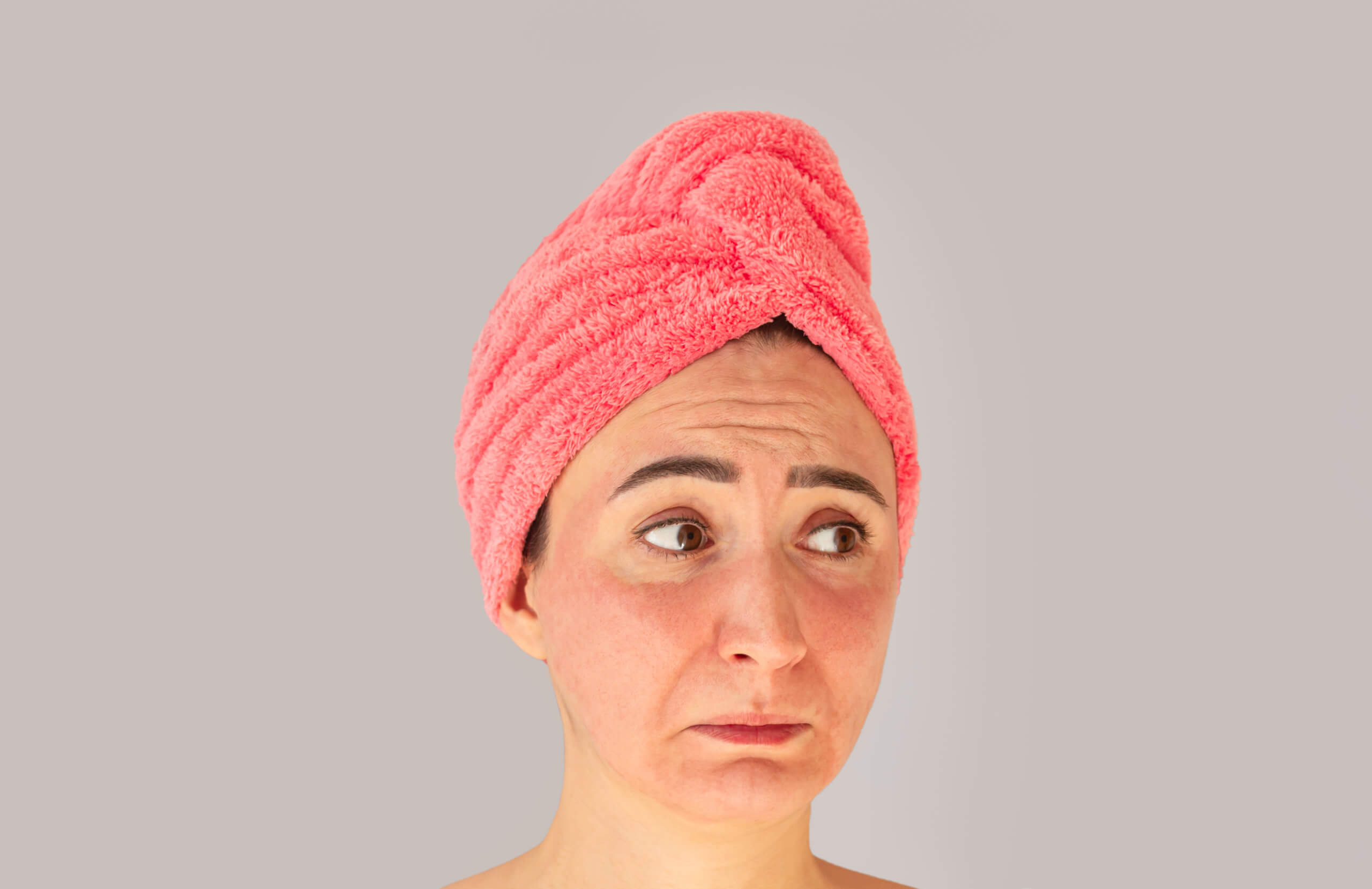
Exfoliation is a good example of something that is beneficial for your skin— until you overdo it.
When you exfoliate, you are getting rid of dead cells, which encourages skin cell regeneration and a brighter complexion. However, exfoliating too often can actually damage your skin barrier and make your skin sensitive, irritated, and dry.
Over-exfoliation also opens up your skin to increased damage from external stressors, including UV rays, which is a fast track to older-looking skin.
Experts usually agree that exfoliating 2-3 times a week is enough for most complexions. Those with sensitive skin may want to drop to once a week or less.
Not Having a Nighttime Skincare Routine
A morning skincare routine can be very beneficial for your skin, but a nighttime regimen is essential. Remember, your skin does a lot of its repair work while you sleep, so you want to maximize these effects by getting your skin “ready for bed”.
One of the most important things you can do is to remove all traces of makeup before turning into bed. Makeup residue may not seem like a big deal, but it can clog pores and cause dead skin cells to build up, leading to dull and lifeless skin.
To magnify the benefits of sleep for your skin, you can also apply anti-aging products like eye cream, serums, and a moisturizer.
If you don’t already have a routine in place, here’s a simple yet highly effective anti-aging skincare regimen to follow.
Applying Products in the Wrong Order
If you already have a skincare routine, that’s great news for your skin. But here’s a question to consider: Are you applying your products in the right order?
The right anti-aging products can be highly effective but only when applied the correct way. As an example, if you were to put your moisturizer on before your targeted serum, the serum would mostly be useless because the moisturizer stops it from being absorbed.
In general, you should apply products with a lighter texture first and those that are heaviest last. This helps your skin to absorb the maximum amount of ingredients and then locks everything in.
A quick four-step routine would look like this:
- Cleanser
- Eye cream
- Serum (or other targeted treatment)
- Moisturizer
Being Hard on Your Eyes

The skin around your eyes is very delicate. This means that it can easily become dried out or irritated and is often one of the first areas of your face to show signs of aging (crow’s feet, under-eye bags, etc.).
Using harsh cleansers or other types of skincare products around your eyes only makes it more likely that this area of skin will become irritated and show signs of aging more quickly. Even rubbing your eyes frequently tugs and stretches your skin, making bags and dark circles more visible.
To combat this, avoid touching the skin around your eyes as much as possible. Use a very gentle cleanser and never scrub harshly. Also, moisturize with a dedicated eye cream rather than a general moisturizer.
Getting Too Much Blue Light Exposure
You may have heard by now that electronic devices emit something known as blue light. This is concerning because of the discovery in recent years that blue light exposure in the evening can significantly disrupt your sleep-wake cycle, potentially causing serious sleep disruption.
Losing sleep, of course, has a negative impact on your skin, but there’s more to the story.
Blue light has actually been found to penetrate into the deeper layers of your skin and is believed to contribute to premature aging. How much of an impact this has is still unknown, but it’s yet another reason to limit the use of electronics.
At the very least, install a blue light filter on your devices!
Squinting & Repeating Other Facial Movements
Any type of facial movement makes grooves in your skin that can become permanent wrinkles if you repeat that same movement often enough.
Of course, you don’t want to become an expressionless statue just to avoid wrinkles, but there are some specific habits you may want to consider dropping.
Squinting is one such habit that contributes to crow’s feet and fine lines around your eyes (not to mention eye strain). It happens most often if you don’t wear glasses or corrective lenses when you need them or when you stare at a screen for too long.
Sipping from a straw is a somewhat surprising way to cause or deepen wrinkles around your mouth, so go without when possible.
Forgetting About Your Neck, Chest, & Hands
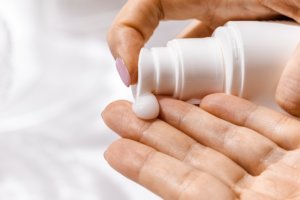
Most anti-aging skincare products and practices target the face. This isn’t surprising since our faces are very exposed to sunlight, toxins, and other age-accelerators that cause “wear and tear”.
However, it’s a mistake to ignore other areas of your skin that get nearly as much exposure as your face, especially your neck, chest, and hands. These specific areas of skin are also likely to show signs of aging like wrinkles, dark spots, and roughness but rarely get as much care as your face does.
Consider applying anti-aging moisturizers and other products to more areas of skin than just your face. And don’t forget to apply sunscreen as needed to your neck, chest, and hands (and the rest of your body).
Rescue Your Skin from Bad Habits
If you practice any of the habits on this list, stopping them will be a key part of achieving younger-looking skin. But, of course, you’ll still have to deal with the damage done over the years.
One way to do this is by using powerful products like Age-Defying Night Cream from Purity Woods.
This top quality moisturizer is filled with plant-based ingredients that nourish your skin at the deepest level, effectively making it look plump, bright, and young again. Botanicals like organic maple leaf extract and evening primrose oil quickly diminish the appearance of wrinkles, dark spots, etc. while also hydrating your skin.
The Night Cream is the perfect way to finish a nightly skincare regimen (which you hopefully already have) and is USDA Certified Organic, which means zero toxins or synthetic ingredients.
Learn more about the Age-Defying Night Cream here, and make sure your everyday habits aren’t aging your skin!



